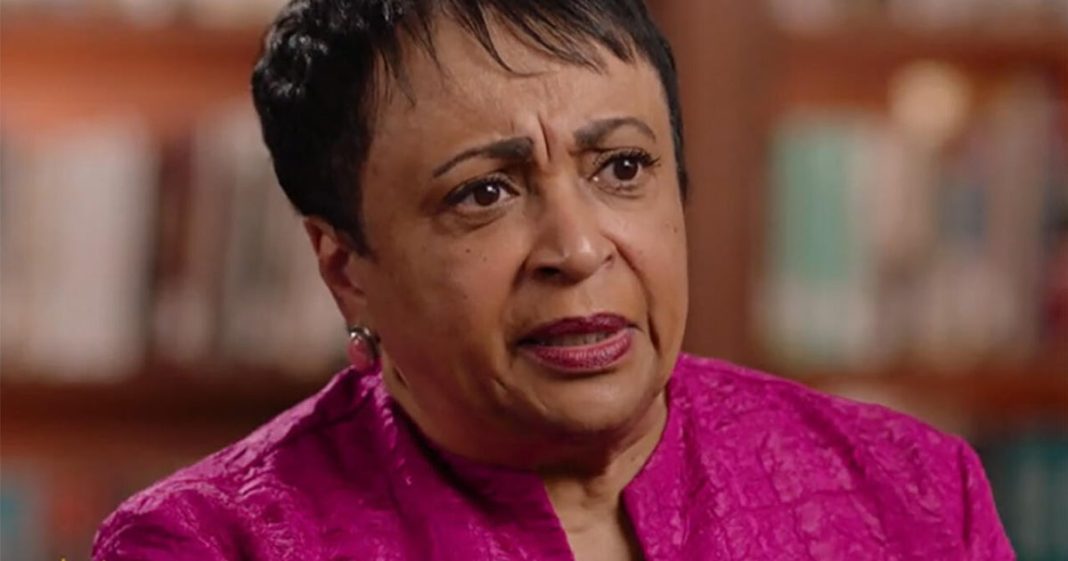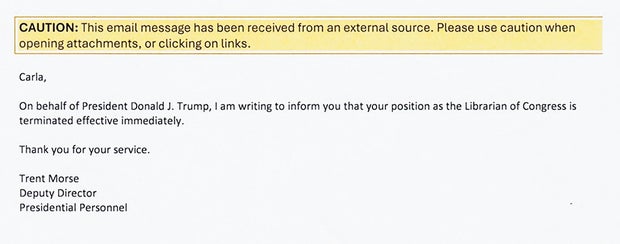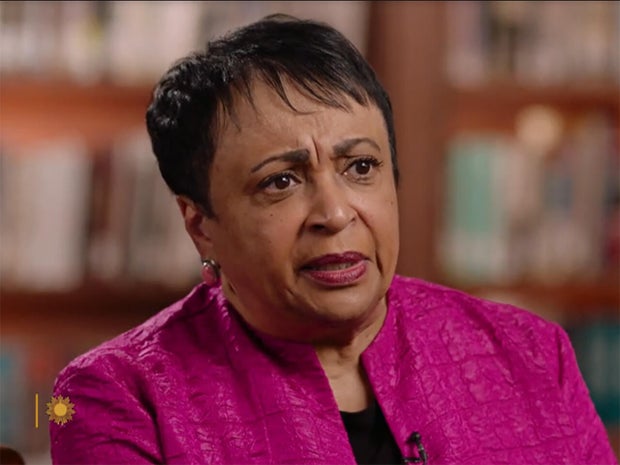
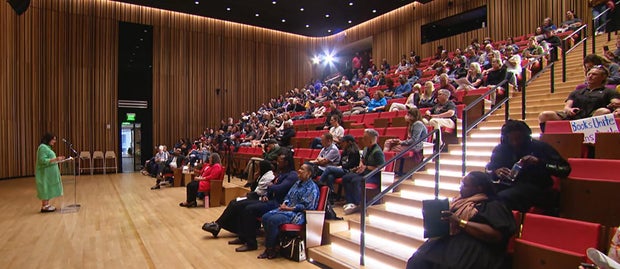
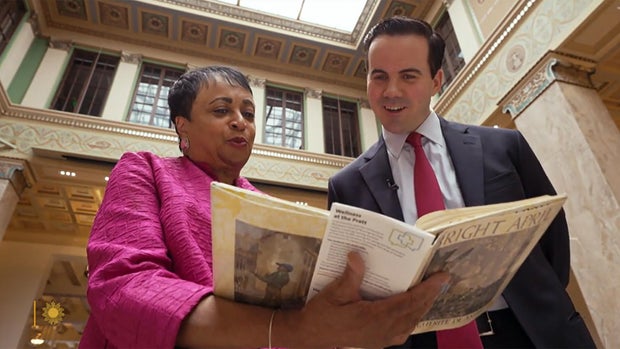
Last month, Carla Hayden was nearing the end of her ten-year term as Librarian of Congress. Appointed by President Barack Obama, Hayden was the 14th Librarian of Congress since 1802. She was a history-maker – the first woman and first Black person to hold the job.
Then, on May 8, Hayden received an email, one she thought may have been fake. It began simply, “Carla,” and stated: “On behalf of President Donald J. Trump, I am writing to inform you that your position as the Librarian of Congress is terminated effective immediately.”
“I was never notified beforehand and after,” she said. “No one has talked to me directly at all from the White House.”
She said she has received no phone call, either – only that single email.
Hayden said there had never been any issues between her and President Trump: “Oh, no, or any other administration.”
“So, this wasn’t personal?”
“No, no. I don’t think it was personal,” she replied.
“Do you think it was about power?”
“I don’t know what it was about, frankly,” Hayden said.
Hayden’s firing is seen by many as part of a broader story. President Trump has been pushing out leaders at cultural institutions, and is targeting public media and universities for spending cuts.
Call to action
Last weekend, at Washington, D.C.’s Martin Luther King, Jr. Library, Hayden’s supporters gathered for a town hall meeting. One speaker, author Kwame Alexander, said, “The firing of our distinguished, esteemed Librarian of Congress, Dr. Carla Hayden, makes it clear to us that the freedom to read, the freedom to learn, the freedom to express ourselves is under attack. … We are simply going to be bold.”
I asked Hayden, “There are librarians, academics, activists, many people in America who are often seen as the ‘quiet types,’ they’re being loud.”
“They’re being loud, I think, and it’s so humbling to have that outpouring of support,” Hayden said. “But what is really, I think, part of this feeling is that it’s part of a larger-seeming effort to diminish opportunities for the general public to have free access to information and inspiration. We like to say as librarians, ‘Free people read freely.’ And so, there’s been an effort recently to quelch that.”
White House Press Secretary Karoline Leavitt has addressed Hayden’s dismissal, stating on May 9, “We felt she did not fit the needs of the American people. There were quite concerning things that she had done at the Library of Congress in the pursuit of DEI and, uh, putting inappropriate books in the library for children.”
Hayden’s response? “When I heard those comments, I was concerned that there might not have been as much of an awareness of what the Library of Congress does.”
The library’s primary function is to fulfil research requests from members of Congress – it is not a lending library for the general public.
The White House press secretary also used the term “DEI,” referring to “diversity, equity and inclusion.” I asked Hayden, “When you hear that, as one of the most prominent Black women in the United States, what do you hear?”
“It’s been puzzling in many ways, to think about being ‘inclusive’ as a negative,” Hayden said.
“What’s that all about?”
“I don’t know, because when you think about diversity, you can put it to its lowest level. It’s wonderful to have options,” Hayden said. “When you go and get ice cream, you know, this one likes strawberry, this one likes pistachio – you know? I would stay with the chocolate, I must say.”
The book that sparked a lifetime of reading
While Hayden, who’s 72, is no longer at the Library of Congress, the Enoch Pratt Free Library in Baltimore, which she led for over two decades, has the feel of home.
Hayden’s lifetime of reading was sparked by a library book – “Bright April” by Marguerite De Angeli, the story of a Black girl and her family. She said she saw herself in that book: “Yeah, it was like, ‘Oh my gosh, this is me,'” she said. “You see yourself. And that’s why it’s so important for young people to see themselves, or to read about experiences that they’re having. ‘Cause it validates you, because you’ve seen it in a book. Somebody took the time, somebody cared enough.
“That’s what librarians are fighting for, that people will be able to say, ‘Here’s a book about our family. We have a family that other people might think is a little different.’ Or, ‘Here’s a book that talks about someone that’s just like you.’ And because it’s in a book, it’s been published, it means that it’s real and it’s important.”
For Hayden, libraries do more than convene people in buildings; they convene Americans around our founding values. And she points to “Freedom to Read” – the 1953 statement by the American Library Association – as a guiding light. “The freedom to read is essential to our democracy,” it said. “It is continuously under attack.”
Is it under attack today?
“Democracy is under attack,” Hayden said. “Democracies are not to be taken for granted. And the institutions that support democracy should not be taken for granted. And so, that’s what the concern is about libraries and museums. It’s part of a fabric. Think of it as an infrastructure that holds up – the libraries have been called one of the pillars of democracy, that you have these institutions in every community that allow anyone to come in and access knowledge.”
For more info:
Story produced by Ed Forgotson. Editor: Chad Cardin.
Source link


